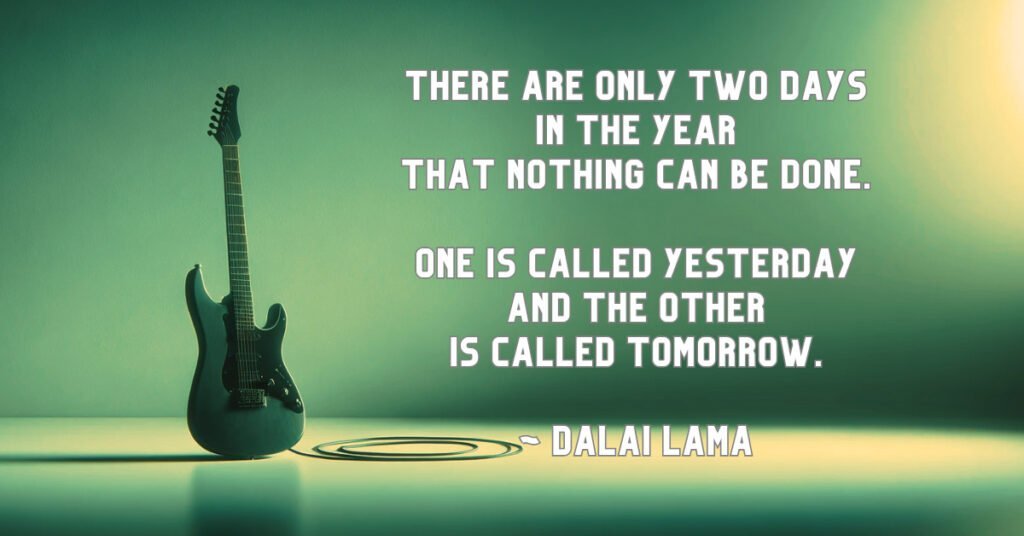
A Universal Principle for Living
The Golden Rule is a timeless concept that transcends cultures, religions, and philosophies. It’s a simple yet powerful principle: treat others as you would like to be treated. This idea has been a cornerstone of ethical teachings around the world, and its message remains as relevant today as it was thousands of years ago. Just as a great song resonates with people across generations, the Golden Rule strikes a chord with humanity, offering a universal anthem for kindness and respect.
Throughout history, various cultures and religious traditions have expressed the Golden Rule in their teachings. Whether it’s Buddhism, Christianity, Hinduism, Islam, Judaism, or Native American beliefs, the principle remains consistent: treat others with empathy and compassion. This universal message encourages us to consider the impact of our actions on others and to act with integrity and kindness.
The Golden Rule’s simplicity makes it easy to understand, yet its implications are profound. It challenges us to look beyond our immediate desires and to consider the well-being of others. By adopting this principle, we can foster more harmonious relationships and create a more just and compassionate society. Just like how music can inspire and unite people, the Golden Rule has the power to bring us together and guide us toward a better world.
Buddhism: Hurt Not Others
In Buddhism, the Golden Rule is expressed as, “Hurt not others with that which pains yourself.” This teaching encourages empathy and compassion, urging us to consider the impact of our actions on others. It’s a call to mindfulness, to be aware of how our behavior affects those around us. Just as a band must work in harmony to create great music, we must live in harmony with others to create a peaceful society.
Buddhist teachings often emphasize the interconnectedness of all beings. When we harm others, we ultimately harm ourselves. This principle is akin to the idea of karma, where our actions have consequences that ripple through our lives and the lives of others. By following the Golden Rule, we can create positive ripples that contribute to the well-being of everyone. Think of it as the bassline in a song that keeps everything in rhythm, ensuring harmony throughout.
Practicing this principle in daily life involves being mindful of our words and actions. It means taking a moment to reflect on whether our behavior would cause pain if directed at us. By cultivating this awareness, we can avoid actions that cause harm and instead promote kindness and understanding. Just as a song’s harmony depends on each instrument playing its part, societal harmony relies on each of us acting with empathy.
Christianity: Do Unto Others
Christianity teaches the Golden Rule as, “Do unto others as you would have them do unto you.” This directive is found in the Bible and is central to Christian ethics. It calls for proactive kindness and consideration, encouraging believers to take the first step in treating others well. Much like a powerful ballad that inspires listeners to be their best selves, this version of the Golden Rule motivates people to act with love and generosity.
Jesus Christ, the central figure in Christianity, exemplified this principle through his actions and teachings. His life was a testament to selflessness and compassion, demonstrating how treating others with kindness can transform lives. By following this teaching, Christians aim to create a world where love and respect are the norms, echoing the harmonious and uplifting spirit of a timeless anthem.
Living by this principle means going out of our way to show kindness, even when it is not expected or reciprocated. It’s about setting an example through our actions, much like how a memorable song can inspire others to follow suit. By embodying this principle, Christians strive to make the world a better place, one act of kindness at a time.
Hinduism: Treat Others as Yourself
In Hinduism, the Golden Rule is articulated as, “Treat others as you would yourself be treated.” This concept is deeply rooted in the idea of dharma, or righteous living. It encourages individuals to act with integrity and respect, recognizing the divinity within each person. Similar to how music often speaks to the soul, this teaching resonates with the core of human decency and spiritual connection.
Hindu philosophy emphasizes the unity of all life. When we treat others with the same respect and kindness we desire, we honor the divine within them and ourselves. This approach fosters a sense of oneness and community, much like how a powerful song can bring people together in shared emotion and experience. It’s like the lead guitar solo that resonates deeply, connecting with the listener’s heart.
Applying this principle involves acknowledging the inherent value in every individual. It means recognizing that our actions towards others reflect our inner values. Just as a band’s performance relies on each member’s contribution, societal harmony depends on each person’s commitment to treating others with respect. By living this way, we contribute to a more compassionate and interconnected world.
Islam: Do Unto All Men
Islam teaches the Golden Rule as, “Do unto all men as you would wish to have done unto you.” This principle is embedded in the teachings of the Prophet Muhammad and is a foundational aspect of Islamic ethics. It calls for fairness, justice, and empathy in all interactions. Just as music often champions the underdog and calls out injustice, this teaching urges Muslims to stand up for what is right and treat others with the utmost respect.
The concept of ummah, or the global Muslim community, highlights the importance of treating others well. By practicing the Golden Rule, Muslims can strengthen their bonds with others, fostering a sense of unity and mutual respect. This principle serves as a guide for building just and compassionate societies, echoing the rallying cry for equality often heard in anthems.
Implementing this principle means advocating for fairness and justice in our daily lives. It involves treating everyone with the dignity and respect we expect for ourselves. Much like a song that speaks to social issues, this teaching encourages proactive efforts to create a fairer and more equitable world. By doing so, Muslims contribute to a more just and harmonious society.
Judaism: What You Hate, Do Not Do
In Judaism, the Golden Rule is expressed as, “What you yourself hate, do to no man.” This teaching, found in the Talmud, emphasizes the importance of avoiding harm and treating others with consideration. It’s a straightforward yet profound directive that encourages empathy and respect. Similar to how music often conveys powerful messages with simplicity and directness, this version of the Golden Rule cuts to the heart of ethical behavior.
Jewish teachings often highlight the importance of community and the responsibility each person has to contribute positively to society. By refraining from actions that cause harm, individuals can create an environment of trust and cooperation. This principle aligns with the ethos of looking out for one another and standing against actions that cause pain or injustice. It’s like the steady drumbeat that keeps everyone in sync, ensuring everyone moves forward together.
Living by this principle involves a conscious effort to avoid actions that we know would hurt us if they were directed our way. It’s about cultivating empathy and understanding the impact of our behavior. Just as a band needs each member to stay in rhythm, society relies on each person to act with consideration and care. By doing so, we build a community based on trust and mutual respect.
Native American: Live in Harmony
Native American teachings also embody the essence of the Golden Rule with the principle, “Live in harmony, for we are all related.” This perspective emphasizes the interconnectedness of all life and the importance of living in balance with others and the natural world. Much like the way music can unite people from diverse backgrounds, this teaching encourages harmony and mutual respect.
The concept of kinship extends beyond human relationships to include animals, plants, and the earth itself. By living in harmony with all beings, we honor the sacred connection that binds us. This holistic approach to the Golden Rule fosters a deep sense of responsibility and care for the world around us, mirroring the unity and collective spirit often celebrated in festivals and gatherings. Think of it as the chorus of a song that brings everyone together, singing in unison.
Practicing this principle involves recognizing our interconnectedness and acting in ways that support the well-being of all. It means making choices that are considerate of the environment and the community. Just as a concert brings together people from all walks of life in shared enjoyment, living in harmony fosters a sense of unity and collective responsibility.
The Golden Rule in Daily Life
Applying the Golden Rule in our daily lives can transform our interactions and create a more compassionate world. It’s a principle that transcends differences and speaks to our shared humanity. Just as a great song can bridge gaps and bring people together, the Golden Rule can help us build bridges of understanding and kindness.
One way to practice the Golden Rule is by actively listening to others and considering their perspectives. This approach fosters empathy and helps us respond with compassion. It’s like tuning into the different instruments in a band, appreciating how each contributes to the overall harmony. By valuing each person’s voice, we create a richer, more inclusive community.
Another application of the Golden Rule is in our everyday actions, from small acts of kindness to larger efforts for social justice. Treating others with respect and fairness, standing up against injustice, and offering support to those in need are all ways to embody this principle. Much like how music can inspire action and change, the Golden Rule motivates us to make a positive impact in the world.
Living by the Golden Rule requires a commitment to empathy and consideration in every aspect of life. It’s about making choices that reflect our values and contribute to the greater good. Just as a song’s message can resonate and inspire, the Golden Rule can guide us in creating a more compassionate and just society.
Conclusion: The Golden Rule Unites Us All
The Golden Rule is a timeless principle that transcends cultural and religious boundaries, offering a universal guide for ethical living. By treating others as we wish to be treated, we can create a more compassionate and just world. This principle, much like the enduring power of music, speaks to our shared humanity and our potential to live in harmony.
Whether we find inspiration in the teachings of Buddhism, Christianity, Hinduism, Islam, Judaism, or Native American traditions, the Golden Rule offers a common thread that unites us all. It’s a call to empathy, respect, and kindness, encouraging us to act with integrity and compassion. Just as a great song can bring people together and inspire change, the Golden Rule can guide us toward a more harmonious and just society.
By embracing the Golden Rule in our daily lives, we can make a positive impact on those around us and contribute to a better world. It’s a simple yet profound principle that, like the best anthems, resonates deeply and inspires us to be our best selves. So let’s turn up the volume on kindness and let the Golden Rule be our guide, creating a symphony of compassion and respect in our interactions with others.


